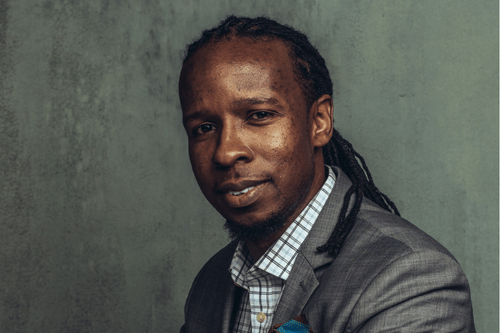I was excited to hear that Dr. Ibram X. Kendi was going to be a keynote speaker in March at The Montessori Event. Dr. Ibram X. Kendi is a MacArthur “Genius” Fellow, a National Book Award Winner, a #1 New York Times bestselling author, an Andrew W. Mellon professor in the Humanities, and the founding director at the Boston University Center for Antiracist Research. Dr. Kendi has written six books for adults and five books for children and he hosted a six episode podcast called Be Antiracist. He has also published fourteen academic essays that can be found in academic journals such as The Journal of African American History. He writes op-eds for different periodicals including The New York Times, Washington Post, and The Atlantic, among others. His name was changed along the way, including his middle name (changed from Henry to Xolani, which means “Peace” in Zulu) and the surname Kendi, which means “loved one” in Meru, chosen with his wife, Dr. Sadiqa Kendi upon their wedding.
Among his books for adults is the #1 New York Times bestselling book How To Be An Antiracist. In this book, Dr. Kendi takes the reader on a journey of becoming antiracist himself while describing various obstacles and opportunities along the way, starting with his roots as a child born to parents in New York City who came of age during the Black power movement but met through their pursuit of Christian activism. During his teenage years, his family relocated to Manassas, VA. He majored in journalism at Florida A&M University, initially planning on working in sports journalism. As he narrates his own story, he discusses a variety of antiracism topics.
Each chapter is devoted to a concept, including, but not limited to Power, Culture, Color, Class, Gender, and Sexuality. He typically defines the concepts at the start of the chapters, and discusses them throughout, interspersed with his personal journey and how his thoughts have changed over time. He writes not only about his successes in becoming antiracist, but also includes the failures that helped mold him into the person he is today. In the AMS Anti-Bias, Antiracist (ABAR) Affinity Group, we are currently discussing this book chapter by chapter each month.
There are many inspiring, thought-provoking, and challenging quotes throughout the book. In the chapter on Culture, Dr. Kendi says, “To be antiracist is to see all cultures in all their differences as on the same level, as equals. When we see cultural differences, we are seeing cultural difference—nothing more, nothing less.” This often leads me to think about how I approach teaching about different cultures in my own practice. It’s one of the big reasons why I try to regularly go back through my materials to ask myself those four critical questions I learned in the AMS ABAR Certificate Program:
- Who is not being represented?
- Who is being silenced?
- How is this happening?
- Why is this happening?
In his chapter entitled, Failure, there was a lengthy, but important quote that reminded me that as I am working towards being antiracist, how I approach the work of change is critical.
“Moral and educational suasion breathes the assumption that racist minds must be changed before racist policy, ignoring history that says otherwise. Look at the soaring White support for desegregated schools and neighborhoods decades after the policies changed in the 1950s and 1960s. Look at the soaring White support for interracial marriage decades after the policy changed in 1967. Look at the soaring support for Obamacare after its passage in 2010. Racist policymakers drum up fear of antiracist policies through racist ideas, knowing if the policies are implemented, the fears they circulate will never come to pass. Once the fears do not come to pass, people will let down their guards as they enjoy the benefits. Once they clearly benefit, most Americans will support and become the defenders of the antiracist policies they once feared.”
This quote is meaningful in my position where I work because I want to enact lots of changes, and hoped to start with training others to become more antiracist which would go with the assumption above that “racist minds must be changed before racist policy.” I have since had to shift my mindset to how I will seek out the changes that I know will benefit all in the long run.
Dr. Kendi recently published a new children’s book, Goodnight Racism. This is a beautifully written and illustrated story about how “when we dream, we imagine what is possible and what the world can be.” As a Lower Elementary guide, I feel that this book would be suitable for both Children’s House and Lower Elementary students, ideal for ages 3 – 7. It’s a great introduction to the concept of social justice.
I’m excited to see that as of this January (2023), there are two publications coming out: How To Be A (Young) Antiracist and The (Young) Antiracist’s Workbook, both geared toward young adults ages 12 and up, and putting a young adult spin on the concepts discussed in How To Be An Antiracist.
No matter where you may be personally in your Anti-bias, antiracist (ABAR) journey, I encourage you to take the time to read, listen, and learn from Dr. Ibram X. Kendi and the powerful, illuminating, and enlightening vision he has for working toward an antiracist society. I’m certainly looking forward to hearing his keynote address at The Montessori Event this spring!
The opinions expressed in Montessori Life are those of the authors and do not necessarily represent the position of AMS.


